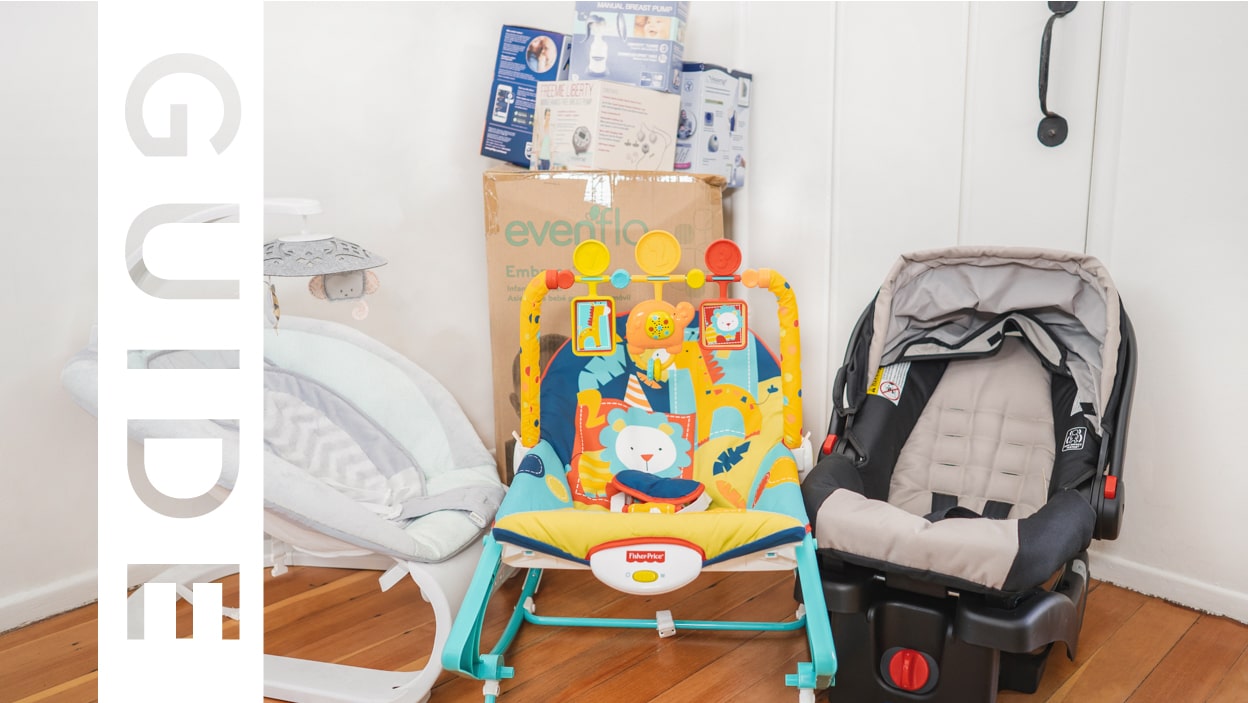

So you’re having a baby — or it’s somewhere on the near-ish horizon. Hooray! But before you can think about setting up your maternity leave, you need an understanding of what a maternity leave actually is, since the language around it can admittedly be confusing. Here are the basics.
Getting your bearings
Picture two pieces of a puzzle: 1) the time away from work, and 2) the income. These two pieces need to be merged together into a cohesive unit, so understanding of how each of these pieces operates is key to having a maternity leave that works for you, according to Lauren Wallenstein, an expert in the area of paid parental leave and the founder of Milk Your Benefits, a company that helps expectant parents maximize their maternity leaves in California.
“Many people don’t realize that the time away from work and the job protections that are associated with that are not the same thing as forms of income that you get paid during that time,” she said.
Some quick-n-dirty basics:
FMLA (the Family and Medical Leave Act) provides job protection while you’re disabled, while things like disability are forms of income that you get paid while you’re on a leave of absence. (FYI disability can either come from the state, from a company-sponsored plan, or even a privately held plan.) Some private companies offer paid maternity leave for their employees, and if yours does, you’re in a lucky minority. Meanwhile, each state has its own laws and benefits around parental leave, so you’ll want to learn the 411 for your state.
Who to tell…
This may depend on the type and size — and specific culture — of your workplace. Of course a small startup will be different from a large corporate environment.
Generally, best practice is to tell your boss first, and from there you can notify HR directly afterward. If you have a boss with whom you don’t get along well or one who could meet this news with anything other than complete support, then start with HR. And, yep, that means try not spill the beans to your bestie colleagues first, no matter how much it’s killing you.
…and when?
Ideally you’d hang on for at least 12 weeks and tell your employer at the beginning of the second trimester. But if you’ve had any sort of illness related to the pregnancy, or if you’re showing early, go ahead and talk to your employer earlier.
What do you say?
Not much at this point. There’s no need to sweat over a script on this one. You needn’t come in with a grand plan; this is just a chance to relay the information.
“That first conversation should be very simple,” said Wallenstein. “It should be ‘I am pregnant and this is my due date.’ Nothing more than that. At this point it’s really about gathering basic information as simply as possible from the correct source.”
If you work at a large company where everything is very standardized, it should be pretty straightforward. After sharing the news of your pregnancy with your boss, you’ll basically say (to your boss or HR) “May I have any and all information related to what my leave of absence may end up looking like?” or “What financial benefits am I entitled to during my leave of absence?”
If you work in a small company of, say, 25 people, the same questions apply; just know that you may not be subject to some of the leave of absence laws that you would be if working at a larger company.
… and not say?
This conversation is a great place to practice the art of SAYING LESS. At this point you don’t really want to get into concrete talk about dates or other details because that can evolve later.
Wallenstein suggests holding off on making commitments until as late as possible, in part because you don’t know what will go on with you physically.
“So many factors with regard to your pregnancy are unknown until the last trimester, maybe even the last month or two,” she said.
So when can you get planny?
Sometime during your last trimester is the right time to come up with a concrete proposal for your leave duration. And Wallenstein suggests going big.
“Come up with the broadest, longest proposal that you’re entitled to under all the applicable state laws and the company guidelines,” she said. “And then, once you have the baby, if you choose to return sooner, go ahead and change your mind because employers won’t be angry that you’re returning to your job sooner than you promised.”
Meanwhile, a few rules of the road:
DO…
- Put everything in writing, even if it’s just to confirm or recap a conversation you’ve had with your boss or with HR. You can even do it via email — just so that you have a record of whatever it is you have just learned.
- If you need to help train somebody, then it definitely can be helpful to choose a concrete final end date before your leave begins. “Sometimes women wait — or think they would like to wait — until they go into labor and then start their leave at that time,” said Wallenstein. “But I actually think that very often confuses things for everybody because you may be left having not trained somebody, for example.”
- Find out whether you can apply your sick or vacation time to help you get paid during any unpaid portion of your leave.
- Be prepared to be persistent in getting the info you need, since occasionally employers don’t share all the information until directly asked, Wallenstein said. ”What I see a lot of — and this is shocking — is that clients will tell me ‘no, my company doesn’t have a short-term disability plan,’ and then we analyze the policy and realize there’s money that [the employee is] entitled to that they never even really knew about.” So, ask for any relevant documents — and be sure to review paperwork from your hiring process. Sometimes you’ll come across things your non-preggers-minded self may have ignored.
DON’T…
- Speak to other employees in an effort to learn what you’re entitled to. “In some cases that person may be well-versed, but more likely they are not,” Wallenstein said. “Also, whatever applies to one person may not apply to the next. There are too many variables — even between person to person within the same company — to be able to rely upon information that was given to you.” Plus, you’re not telling colleagues before your boss, anyway, right?







